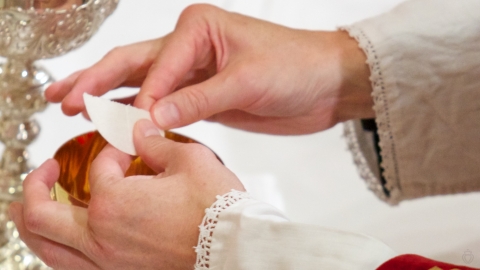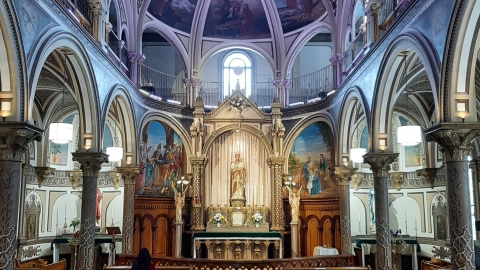The Archbishop and Anti-Liberalism: Political Authority

In the contemporary world, liberal democracy is not only perceived as normative, but inevitable. Ever since the collapse of communism in Eastern Europe in 1989, a consensus emerged that liberalism was here to stay and that political authority ultimately comes from “the people.”
Although Archbishop Marcel Lefebvre never wrote a specific treatise on politics and authority, his views reflected the Catholic Church’s traditional social magisterium. By relying on the teachings of the popes, including St. Pius X, Lefebvre never wavered from promoting the social rights of Christ the King during his long years of service to the Church. In an effort to make this doctrine clear to the members of the Society of Saint Pius X (SSPX) and the faithful they minister to, Lefebvre gave numerous conferences on papal documents, some of which have been collected in the volume entitled Against the Heresies (“AH”) (Angelus Press 1997).
With respect to political authority, it is necessary to look to the Archbishop’s conference on Pius X’s encyclical Notre charge apostolique (“On Our Apostolic Mandate”), which was promulgated on August 15, 1910 and condemned the errors of the French “Sillonist” movement. (This conference is available as Chapter 9 of AH.) That movement sought to blend Catholicism with socialist ideals. While the Sillon paid admirable mind to certain teachings offered by Pope Leo XIII in his landmark encyclical Rerum novarum, its emphasis on the authority of the laity and the liberal conception that political authority, too, rests in the people led to its papal condemnation.
Modern Assumption, Modern Error
In commenting on Pius X’s encyclical, the Archbishop zeroes-in on one of the fundamental modern errors with respect to politics and authority in a democratic society (AH, pg. 260):
We have become so used to seeing everything settled by elections. It is the people who command. The people keep the power and can take back authority from the officials by means of referendums. Ultimately, one comes to concede that authority truly resides in the people and remains there. And this is contrary to the doctrine of the Church. The Catholic says that while the people can designate who exercises authority, it does not confer authority: authority comes from God.
If authority comes from the people and not from God, then it is the people who can determine, for instance, whether it is permissible to allow business owners to pay workers a “market wage” or a “minimum wage” rather than, consistent with natural reason, a just wage. More abhorrently, it is the people who can determine which human lives warrant protection under the law and which do not (unborn babies, the severely disabled, the elderly, and so forth).
Because, as Lefebvre observed, popular elections have become so prevalent in the modern world, contemporary society has slipped easily into the error that the power to elect, that is, the power to choose which individuals will govern in an official capacity, also means the power to determine what is right and what is wrong in accordance with the “spirit of the times.” Behaviors that may have been outlawed for centuries can now be refashioned in terms of “rights” while certain fixed social responsibilities, such as the duty of parents to instruct their children in the Catholic Faith, are set to the wayside.
Democracy Is Not Necessarily the Problem
Before some jump to the conclusion that the Archbishop and the Church as a whole condemns democracy, it is important to note that this view is mistaken. Rather, here is what Pius X, as quoted by Lefebvre (AH, pg. 282) has to say:
We do not have to demonstrate here that the advent of universal Democracy is of no concern to the action of the Church in the world; we have already recalled that the Church has always left to the nations the care of giving themselves the form of government which they think most suited to their needs. What We wish to affirm…is that it is an error and a danger to bind down Catholicism by principle to a particular form of government. This error and this danger are all the greater when religion is associated with a kind of democracy whose doctrines are false.
The Archbishop goes on to highlight that Pius X does not condemn democracy tout court, but rather democracies “based on a false principle.” Going further, he writes, “If, for example, the people merely designate the holders of authority, but without giving it to them, the Church does not condemn such a system.” With respect to the democracy of the Sillonist movement, one which professed “absolute egalitarianism and exaggerated liberty,” the Church cannot “be linked to this kind of democracy.”
In the United States today it can be said that its form of democracy is unmistakably linked to an “exaggerated liberty” that provides women the false right to abort their children or for individuals to choose their own gender before mutilating their bodies. Egalitarianism, too, now rears its ugly head in the form of “identity politics” and various social-justice movements that wish to overturn the natural order and exclude God from society.
It is this form of democracy and the warped view of authority upon which it rests which Archbishop Lefebvre, in union with the Church’s social magisterium, denounced.



